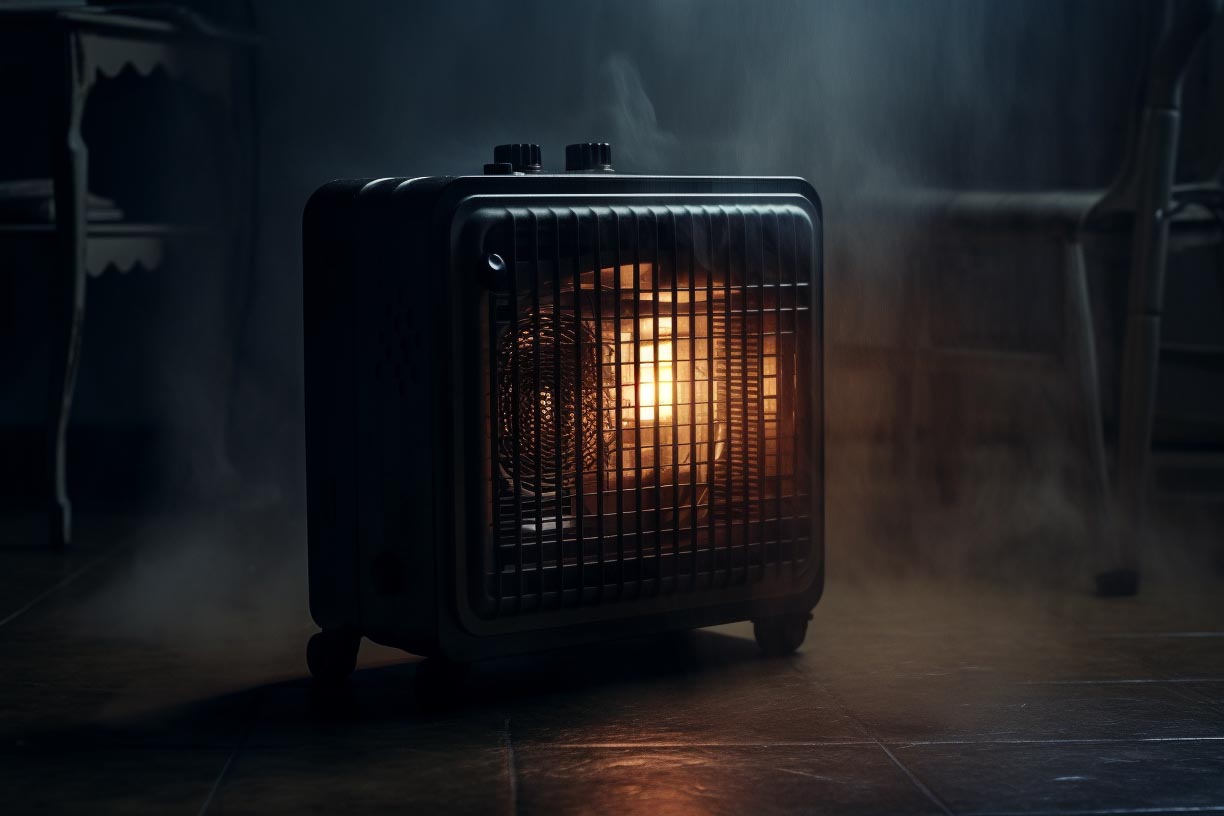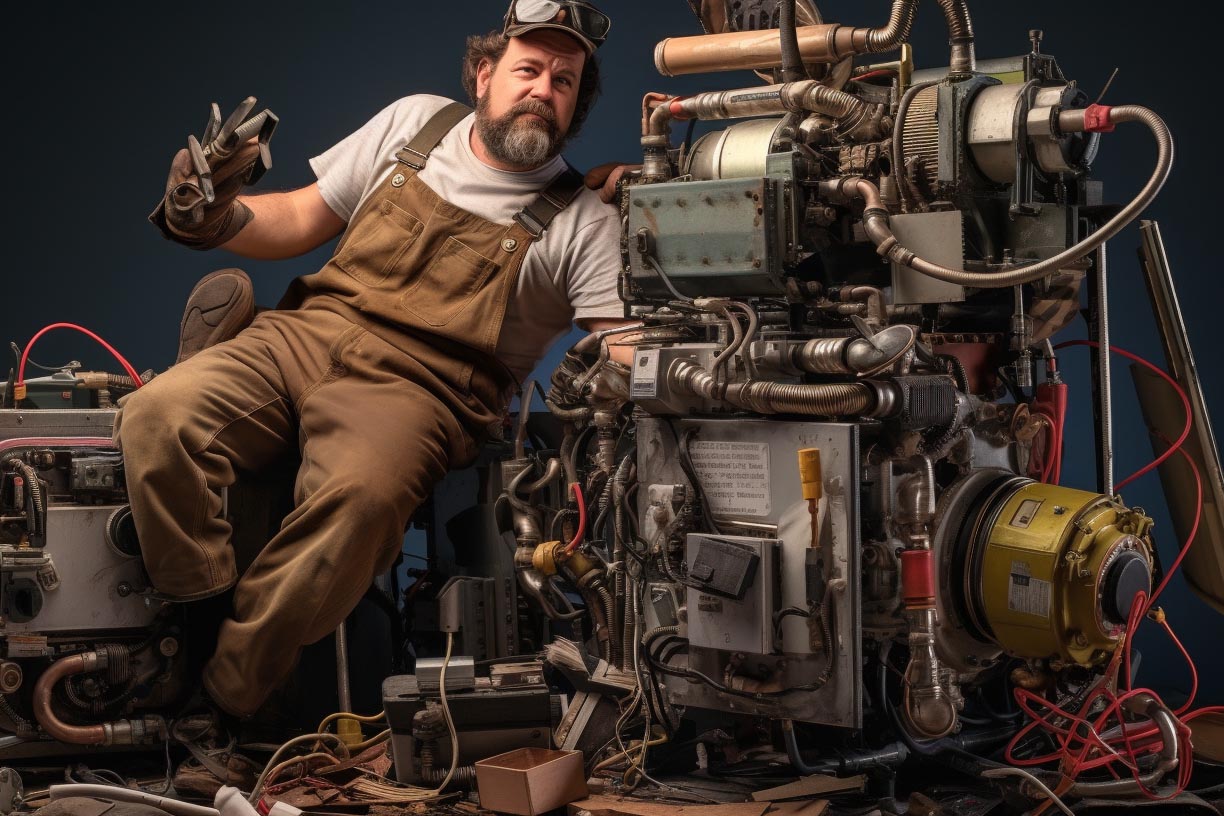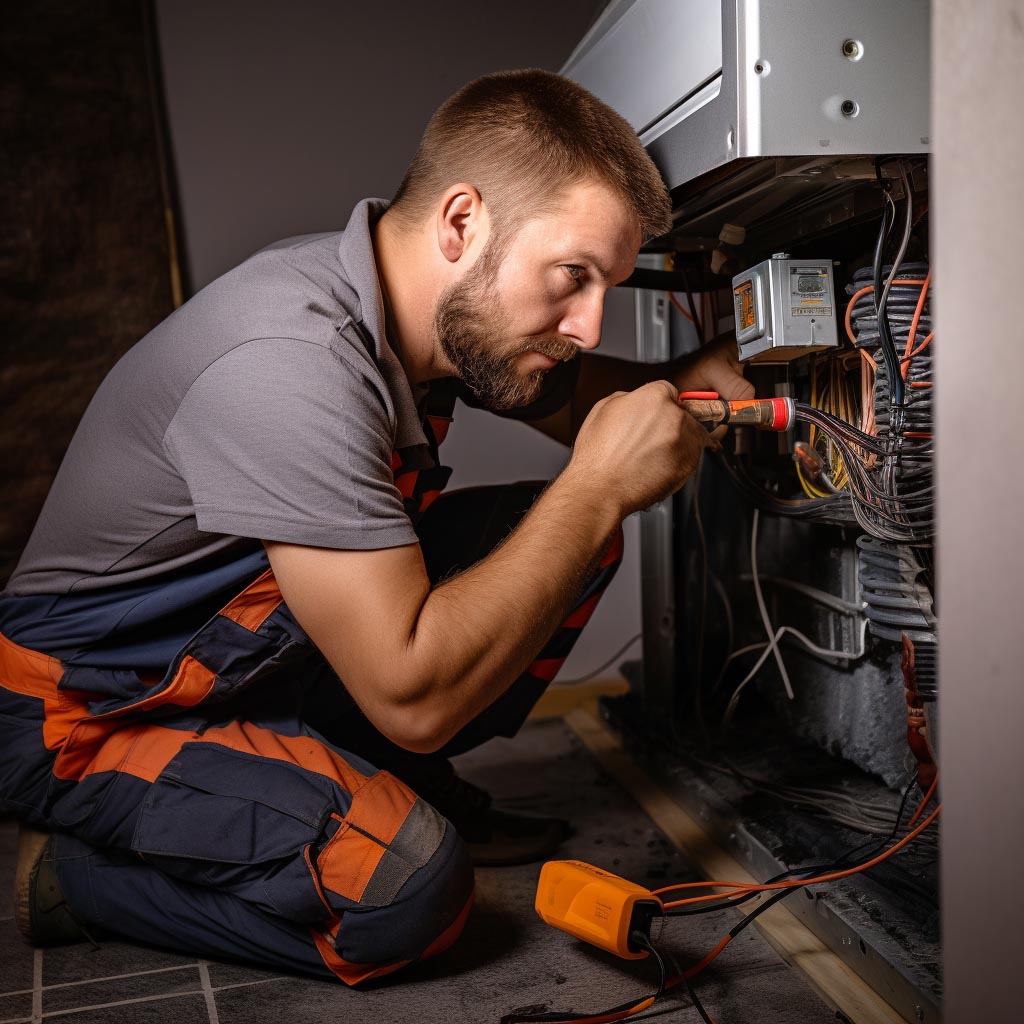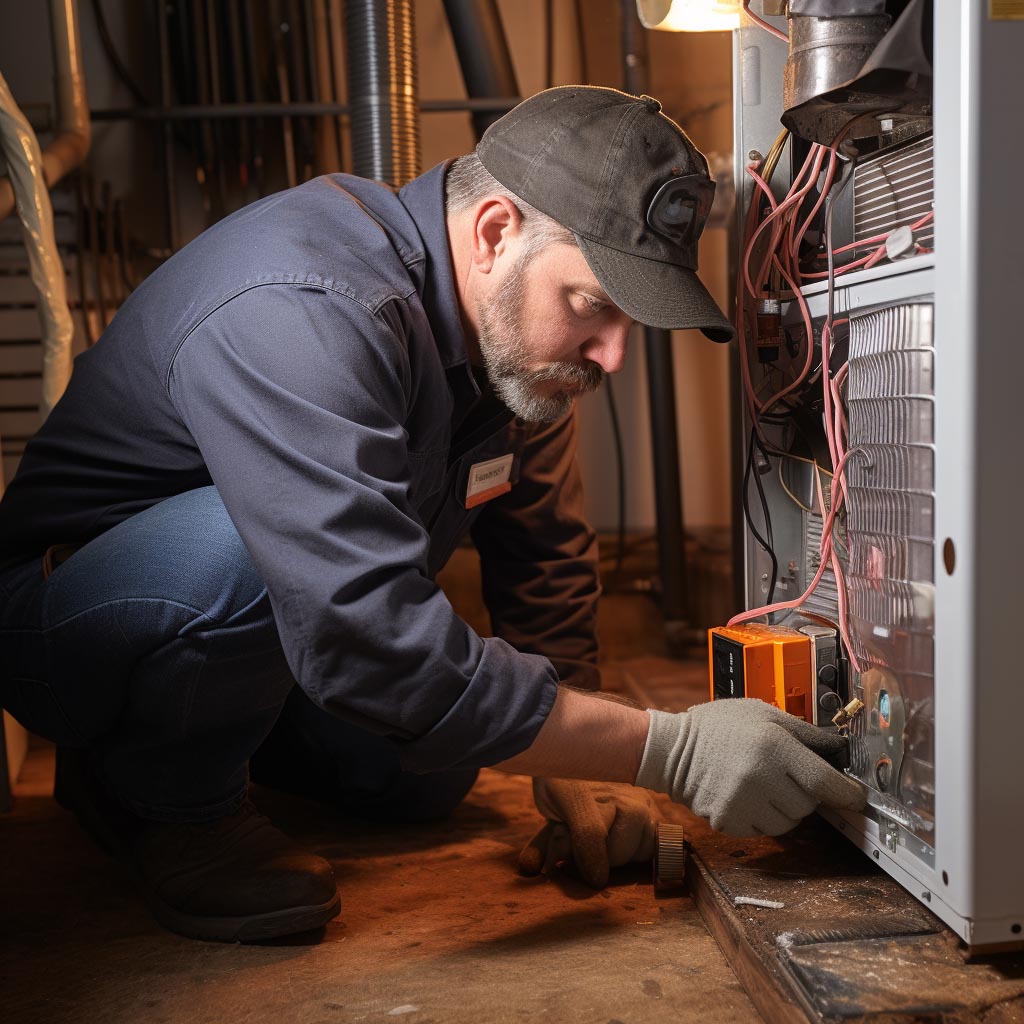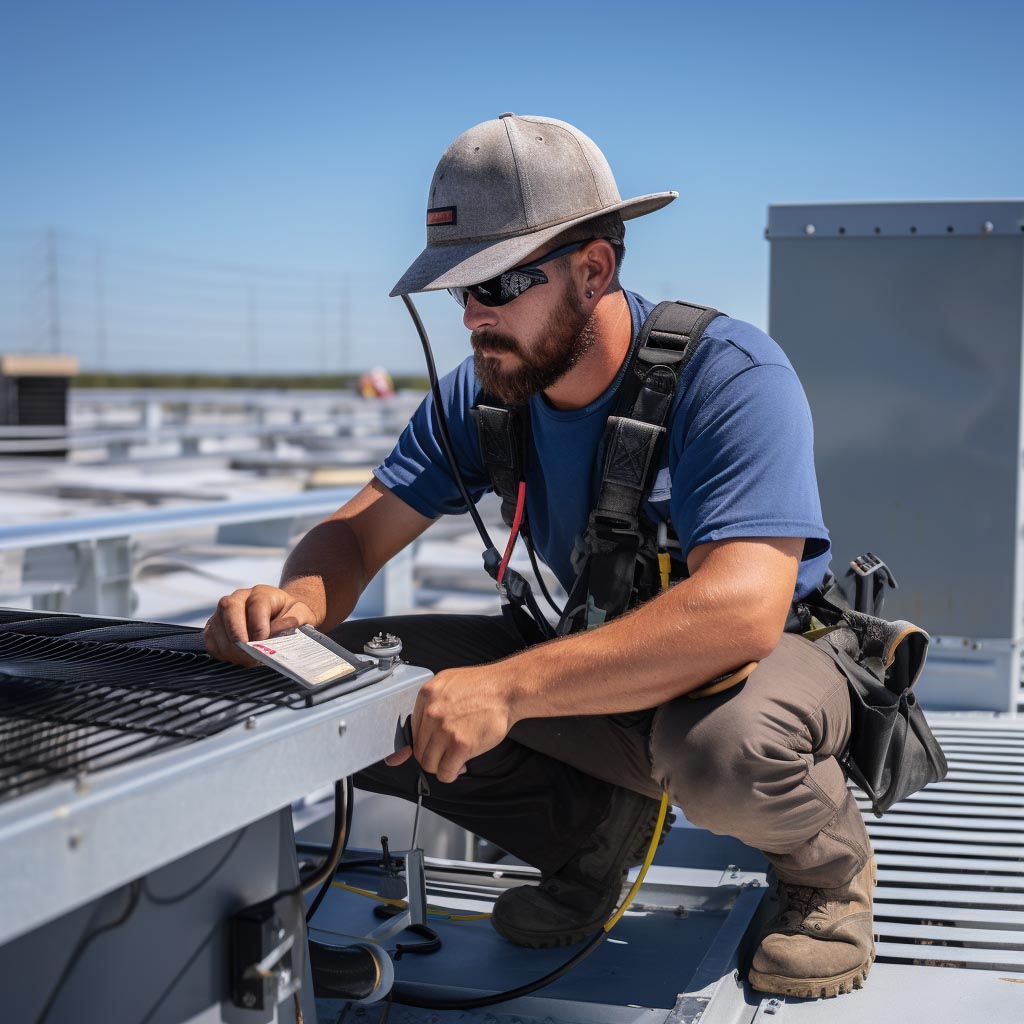What Is a HVAC Contractor
A HVAC contractor is a professional who specialises in the installation, repair, and maintenance of heating, ventilation, and air conditioning (HVAC) systems. These systems play a crucial role in maintaining a comfortable indoor climate by regulating temperature and airflow within residential and commercial buildings.
Heating, ventilation, and air conditioning systems each serve a specific purpose in maintaining a comfortable environment. The heating aspect ensures that the indoor space remains warm during colder months, while the ventilation element allows for proper airflow and helps to remove any indoor air contaminants. The air conditioning component, on the other hand, cools the space during hotter months, ensuring that occupants remain comfortable all year round.
HVAC contractors are tasked with various responsibilities when it comes to these systems. They have the expertise to design and install HVAC equipment, ensuring that it operates efficiently and effectively. Additionally, they are responsible for troubleshooting and repairing any issues that may arise, as well as performing regular maintenance checks to prevent potential problems and ensure the longevity of the system. Some HVAC contractors may also specialise in serving specific sectors, such as residential or commercial properties.
Roles and Responsibilities
A HVAC contractor plays a vital role in ensuring the thermal comfort and air quality of residential and commercial buildings. They are responsible for handling various aspects related to heating, ventilation, and air conditioning systems. In this section, we will discuss the primary roles and responsibilities of a HVAC contractor.
One of the key responsibilities of a HVAC contractor is the installation of heating and cooling systems. They are responsible for properly sizing and selecting appropriate equipment for the specific requirements of a building. This involves understanding the needs of the residents, evaluating the structure’s thermal characteristics, and ensuring compatibility with existing systems or infrastructure.
Maintenance and repairs are crucial duties of a HVAC contractor, as these tasks ensure the smooth operation and longevity of the heating and cooling systems. They perform regular inspections to identify potential issues, replace worn-out parts, and provide recommendations for optimising the system’s performance. Their expertise enables them to diagnose and resolve any malfunctions or inefficiencies that may occur in the system.
Another important aspect of a HVAC contractor’s job is conducting routine inspections of the heating and cooling systems. This helps them identify any underlying issues or areas that may require attention, ensuring the system remains in optimal working condition. Periodic inspections also allow the contractor to detect potential hazards, such as leaks or electrical problems, that could pose a risk to the residents or the building itself. HVAC contractors do ducted heating services, which are important in monitoring for CO.
HVAC contractors are also responsible for providing preventative maintenance services, which are essential to prolong the lifespan of heating and cooling systems. These services typically include regular cleaning of ducts, filters, and coils, as well as checking for proper refrigerant levels and ensuring that the system’s controls are functioning correctly. Preventative maintenance helps reduce the likelihood of unexpected breakdowns, improving the overall performance and efficiency of the system.
In conclusion, HVAC contractors play a critical role in the successful operation of heating and cooling systems, ensuring thermal comfort and indoor air quality in both residential and commercial settings. Their expertise in installation, maintenance, repairs, inspections, and preventative maintenance make them an invaluable resource for achieving optimal performance and efficiency in these systems.
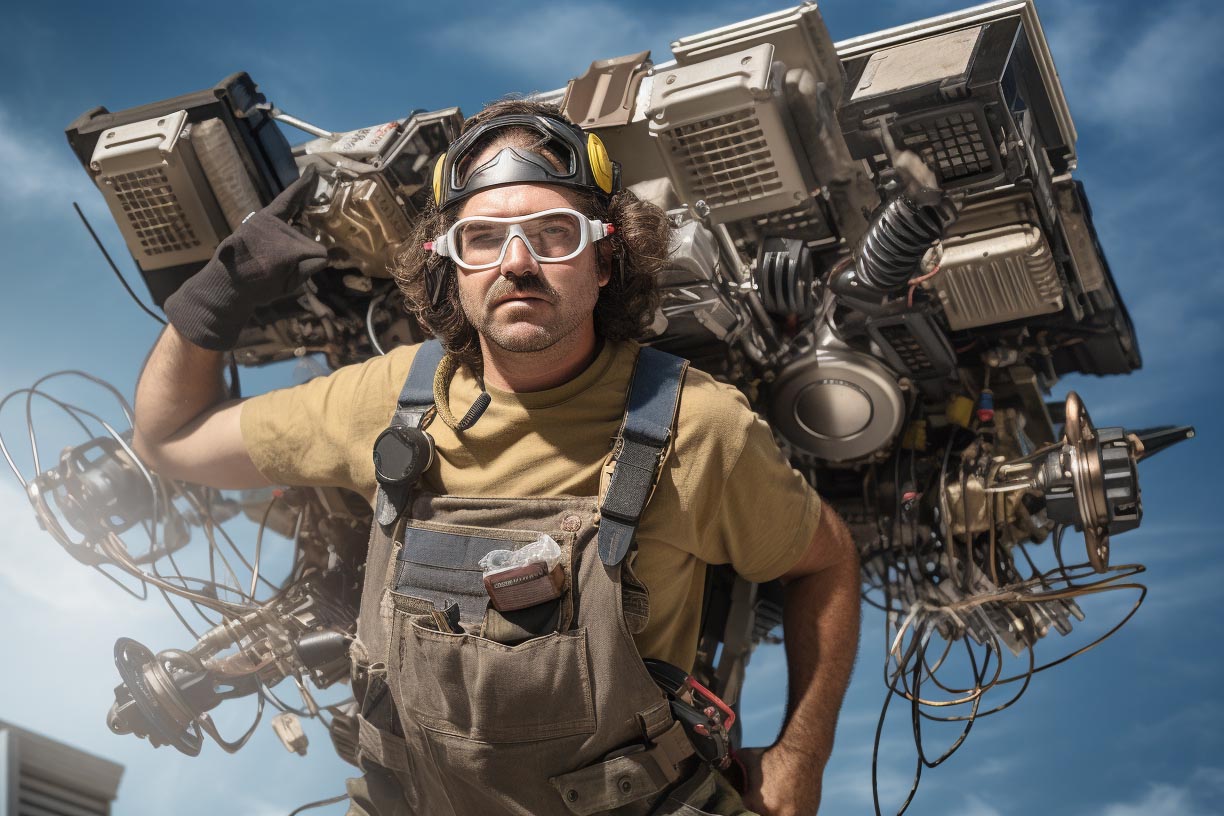
HVAC Systems and Components
HVAC stands for Heating, Ventilation, and Air Conditioning. These systems are essential for maintaining a comfortable living or working environment. This section will discuss some of the main components of a HVAC system, highlighting their functions and importance.
The heating system is responsible for providing warmth in colder months. Common types of heating systems include furnaces and heat pumps. A furnace typically uses gas, oil, or electricity to produce heat, which is then distributed throughout a building via air ducts. On the other hand, a heat pump works by extracting heat from the outside air, even when it’s cold, and transferring it indoors. Heat pumps can be more energy-efficient than traditional furnaces, especially in milder climates.
Air conditioners are used to cool indoor spaces during warm seasons. They function by removing heat from the indoor air and releasing it outside, lowering the indoor temperature. There are various types of air conditioners, such as window units, split systems, and central air conditioning systems. They all operate using similar principles, relying on a compressor, evaporator, and condenser to cool the air while removing humidity.
Proper ventilation is crucial for maintaining good indoor air quality, as it helps remove pollutants, odours, and excess moisture. A ventilation system typically consists of fans and ductwork, which help extract stale air from inside a building while bringing in fresh air from outside. This circulation of air is essential for creating a pleasant and healthy indoor environment.
Ductwork and air ducts play a critical role in the distribution of heated or cooled air throughout a building. They are designed to efficiently transfer air between different rooms or areas, ensuring consistent temperature levels. These ducts need to be properly sealed and insulated to prevent air leaks and energy loss.
Emergency Services
A HVAC contractor is a skilled professional responsible for the installation, maintenance, and repair of heating, ventilation, and air conditioning systems. In certain situations, emergency repairs may be required to ensure the safety and comfort of homeowners. This section will discuss the emergency services provided by HVAC contractors.
Emergency services offered by HVAC contractors typically include rapid response and resolution of issues related to heating, ventilation, and air conditioning systems. When a system becomes inoperative or poses a threat to the occupants, an emergency repair should be requested. These professionals are equipped to handle various types of emergencies, such as broken heating systems, leaking cooling systems, and malfunctioning ventilation equipment.
In some instances, an emergency service call may be required for immediate assistance. Some HVAC contractors offer 24/7 services to respond quickly to customer needs. By contacting an emergency helpline, homeowners can receive the necessary support for urgent heating, cooling, or ventilation issues.
During the emergency service, HVAC contractors will assess the situation, identify the cause of the problem, and carry out necessary repairs. Depending on the extent of the issue, the contractor may need to access various components of the system, such as evaporator coils and other cooling devices. Quick action and effective repairs are essential to minimise damage and restore the system to working condition.
Maintenance and Repair
HVAC contractors play a crucial role in maintaining and repairing heating, ventilation, and air conditioning systems. Their expertise helps ensure that these systems function optimally, allowing for thermal comfort and good air quality in both residential and commercial buildings.
One primary service provided by HVAC contractors is routine maintenance. Regular check-ups and upkeep help keep the systems running efficiently, prevent unexpected breakdowns, and extend their lifespan. During routine maintenance, contractors perform tasks such as cleaning and changing dirty filters, inspecting and adjusting refrigerant levels, and assessing overall system performance.
Repair services are also a significant part of a HVAC contractor’s responsibilities. They are skilled at troubleshooting various issues that may arise within the heating, ventilation, and air conditioning systems. These issues can range from refrigerant leaks to electrical problems. It’s essential to call in a professional contractor as soon as a problem arises, as prompt repairs can prevent further damage and more costly interventions.
Checking refrigerant levels is another crucial aspect of HVAC maintenance. Both too much and too little refrigerant can negatively impact a system’s efficiency and performance. Contractors ensure that refrigerant levels are within the recommended range, and they can also identify and repair any refrigerant leaks that occur.
Finally, HVAC contractors address issues such as dirty filters and electrical problems. Dirty filters can reduce air quality and impede airflow, leading to system inefficiencies and potential damage. Contractors change or clean filters as needed to maintain performance. Electrical issues can also occur within HVAC systems and require the expertise of a professional to diagnose and resolve safely.
Indoor Air Quality and Health
Indoor air quality (IAQ) plays a significant role in the health and comfort of inhabitants in any given building. IAQ refers to the air quality within and around buildings and structures, taking into consideration potential health risks and concerns. HVAC contractors are uniquely positioned to help improve indoor air quality, as their expertise lies in the management of heating, ventilation, and air conditioning systems.
Effective HVAC systems ensure proper circulation and adequate fresh air supply. Heating, ventilation, and air conditioning encompass all systems that heat or cool a building, utilising vents and ductwork to distribute air throughout the space. A well-maintained HVAC system contributes to a cleaner and healthier indoor environment.
Filters are an integral part of maintaining good air quality, as they remove dust, dirt, and allergens from the air circulating within the building. HVAC contractors recommend regular filter maintenance and replacement, ensuring that airflow is unobstructed, and contaminants are filtered out effectively.
Duct cleaning is another essential service provided by HVAC contractors. It involves the removal of accumulated debris and dirt within the ductwork, which can adversely affect the efficiency of the system and compromise air quality. Without regular cleaning, the build-up of dust and harmful particles in the ducts can be circulated back into the indoor environment.
Vents play a crucial role in providing adequate fresh air to building occupants. Proper distribution of ventilation air in occupied spaces is essential for maintaining a comfortable and healthy environment. HVAC contractors ensure that vents are functioning efficiently and are free of obstructions to promote the circulation of fresh air.
Conclusion
HVAC contractors are skilled professionals with expertise in installing, maintaining, and repairing heating, ventilation, and air conditioning (HVAC) systems. These technicians play a vital role in ensuring comfort and maintaining optimal indoor air quality in both residential and commercial spaces.
Possessing extensive knowledge of HVAC systems, contractors are equipped to handle various tasks, from assessing needs and recommending the appropriate system to conducting regular maintenance checks and troubleshooting issues. Their comprehensive understanding of heating and cooling needs ensures that homes and offices have the right equipment for efficient energy consumption and a healthy environment.
To maintain their expertise, HVAC professionals often undergo continuous training and hold relevant industry certifications. They stay up-to-date with the latest technological advancements and best practices for improved safety and performance.
Frequently Asked Questions
What qualifications does a HVAC contractor need?
A HVAC contractor needs to complete a specific training program, gain hands-on experience, and obtain proper licensing. These professionals usually start with a diploma or certificate course in HVAC technology and then gain practical experience through apprenticeships or entry-level positions. Proper training ensures that HVAC contractors are equipped with the necessary skills to install, maintain, and repair heating, ventilation, and air conditioning systems.
How does one become a licensed HVAC contractor?
To become a licensed HVAC contractor, an individual must complete an accredited training program and pass a licensing examination. Licensing requirements vary by region, but most involve demonstrating a certain level of competence and experience in the field. Candidates may also be required to pass a criminal background check, have adequate insurance, and comply with industry regulations.
What services do HVAC contractors provide?
HVAC contractors provide various services related to the installation, maintenance, and repair of heating, ventilation, and air conditioning systems. These services include installing new equipment in residential and commercial buildings, performing routine maintenance checks to ensure efficiency and safety, diagnosing and fixing issues with existing systems, and upgrading or replacing outdated HVAC components.
What is the distinction between a HVAC contractor and a technician?
The primary distinction between HVAC contractors and technicians is the scope of their work and responsibilities. Contractors are responsible for the overall planning, installation, and management of heating, ventilation, and air conditioning projects, whereas technicians focus on the hands-on maintenance and repair tasks. In essence, contractors oversee the larger project, while technicians work under a contractor’s supervision to carry out the technical aspects.
How do HVAC contracts work?
HVAC contracts are agreements between property owners and HVAC contractors to provide regular maintenance, repairs, and other services related to heating, ventilation, and air conditioning systems. These contracts may cover a specified time frame and outline the services included, the frequency of maintenance visits, and the costs involved. Well-maintained HVAC systems operate more efficiently, saving money on energy bills, and prolonging the lifespan of the equipment.

